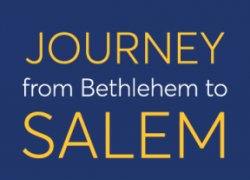October 11 history blog post: One of a series of short essays to provide the cultural, political and geographical context for the 1766 travelers.
Eighteenth-century Moravians in America had a communal economy: they shared the products of their labor, and the Moravian church owned all parts of the production except the labor. In exchange, the members of the community were provided food, housing, clothing, medical care and education for their children. Everyone contributed to the economic health of the community. This system was known as the Oeconomie or General Economy, and it lasted until the 1770s in some communities.
Count Zinzendorf, the leader of the Moravian Church, developed an idea of “community marriage“ based on the ideal of “metaphysics of gender” (Metaphysik der Geschlechter). Members of the community were divided into “choirs” or living groups based on age, gender and marital status. Infants were cared for by their parents, but at around 18 months, they were under the supervision of nurseries. Boys and girls lived together in nurseries until they were four years old, when they would become members of the Little Boys’ or Little Girls’ Choir. Teenagers were in the Older Boys’ or Older Girls’ Choir. Unmarried adults were in the Single Sisters’ or Single Brethren’s Choir. Married Adults had their own choir. Each choir lived, worked, ate, were educated and worshipped together, which developed strong bonds among the entire community. Spirituality was the centerpiece: each member of the community was dedicated to the love of Christ and the well-being of the entire community.
The choir system also dictated burial location, with graves in chronological order, separated by choir status in life.
Virginia S. Hart A’75
Sources:
Beverly Prior Smaby, The Transformation of Moravian Bethlehem: From Communal Mission to Family Economy
“Bethlehem, Pennsylvania 1741-1844,” http://bdhp.moravian.edu/bethlehem/bethlehem.html
“Bethlehem, Pennsylvania: A Moravian Settlement in
Colonial America,” https://www.nps.gov/articles/000/upload/TwHP-Lessons_59bethlehem.pdf
“Moravian Brethren,” https://www.encyclopedia.com/philosophy-and-religion/christianity/christianity-general/moravian-brethren
Aaron Spencer Fogleman, Hopeful Journeys: German Immigration, Settlement, and Political Culture in Colonial America, 1717-1775
